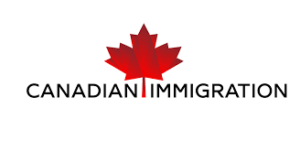Menu
TALK TO AN EXPERT
(778) 786 3480
To visit Canada, you will need to meet some basic requirements:
Canadian vacations can provide some of the most enjoyable breaks from work. The way the world is with so many countries at war, the socially indifferent and politically free Canadians can be a very welcoming community. Canada has so much to offer, with all its history, places to visit, cultural events and sport activities. Canada’s huge variety of fun outdoor activities and events make it a fantastic travel destination for families travelling with children. From hiking or skiing/snowboarding to visiting Quebec Winter Carnival or the Calgary Stampede, a Canadian vacation with kids is good fun for the whole family.
Most travelers need a valid entry document such as a visa to visit Canada. This will depend on your citizenship and/or your situation.

Some people are inadmissible—they are not allowed to come to Canada. Several things can make you inadmissible, including involvement in criminal activity, human rights violations and/or organized crime. You can also be inadmissible for security, health and/or financial reasons.
When a country has as much to offer as Canada, it is easy to see why hundreds of foreign direct investors have invested billions of dollars in businesses, both large and small. For investors, Canada boasts multiple advantages and unparalleled potential, a place where businesses can achieve excellence at the local as well as the global scale.
Canada’s solid growth is underpinned by a financial system that is the envy of the world. The sovereign debt crisis in Europe and renewed concerns about the global economic outlook have once again put a spotlight on bank safety. Canada, which has the soundest banking system in the world according to the World Economic Forum, has become even more attractive than ever for global business leaders. Some of the world’s safest banks—Best-in-class financial regulations and strong balance sheets have helped Canada’s banks earn global recognition. Competitive borrowing rates and the excellent shape of the Canadian banking system means that Canadian banks and financial institutions will be more receptive to multinational corporations’ and small business investment and expansion plans both in Canada and globally. Also, they can provide financing to global investors at competitive borrowing rates.
Recent OECD statistics rank Canada as a top performer among G-7 countries in terms of GDP growth from 2007-10 and during the 2011-12 forecast periods. Regulations pertaining to the creation of new businesses are considerably more flexible in Canada than those in the rest of the G-7; Canada ranks first among the G-7 and OECD countries for the lowest number of procedures required to establish a new business. The overall skill level of Canada’s workforce ranks high among competing countries; Canada has the second highest percentage of individuals achieving at least a college or university education, among OECD member countries. Canada leads the G-7 and ranks 8th among 125 countries in terms of the enabling trade index, which measures the effectiveness of the combined factors of market access, border administration, transport & communications infrastructure, and business environment towards the efficient flow of goods over borders and to their final destination. A low inflation environment provides business certainty for investors. Canada’s targeted inflation rate range between 1% and 3% has been extended until 2011. Over the past five years, Canada has enjoyed relatively low inflation – averaging 1.7% compared to 2.2% for the U.S. According to the Prosperity Potential Index, Canada ranks 1st in the G-7 and 6th among 30 developed countries in terms of the likelihood for economic prosperity in the year 2020.
’In comparison to the economies of Europe and the U.S., Canada’s continuously growing economy, currently ranked no. 9 in the world, has emerged as a favorable climate for investment. Among many other things, Canada’s $1.6 trillion economy, combined with its profitable banks that thrived during the financial crisis because of their conservative lending practices, Canada has proven its vitality in the international realm. Forbes determines their ‘Best Countries for Business by looking at 11 different factors: property rights, innovation, taxes, technology, corruption, freedom (personal, trade and monetary), Bureaucratic red tape, investor protection and stock market performance. Overall, Canada ranked in the top five for both investor protection, as well as lack of red tape. Canada’s tax status changes have meant reductions in corporate and employee tax rates making Canadian businesses more competitive. While other countries suffer from increasing unemployment rates, Canada has improved its employment levels and continues to yield an ever growing, educated workforce. Through research and published reports from the Central Intelligence Agency, Freedom House, Heritage Foundation, Property Rights Alliance, Transparency International, the World Bank, World Economic Forum, Bloomberg, and Forbes magazine has found that Canada ranks high and is a hub for investment.

Canada’s federal tax incentive program, Scientific Research and Experimental Development Tax Incentive Program (SR & ED), administered by the Canada Revenue Agency (CRA), encourages and supports industrial research and development conducted by Canadian Businesses of all sizes and in all sectors. The program works by giving claimants cash refunds and/or tax credits on expenditures such as wages, materials, machinery, equipment, some overhead, and SR & ED contracts. The SR & ED program is the single largest source of federal government support for industrial research and development. SR & ED helps in maintaining Canada’s competitive edge in research and innovation and leads to new, improved, and technologically advanced products or processes.
Over the last 10 years, Canadian economy grew faster than any other G-7 country. Canada offers foreign direct investors one of the strongest banking sectors in the world and a government fiscal position that is better than any other G-7 country.
The Economist Intelligence Unit has rated Canada the #1 place to do business in the G-7 for the next three years. Canada’s low corporate taxes and a duty-free manufacturing tariff regime are only some of the reasons why Canada continuously ranks as one of the most cost-effective global investment destinations.
From next-generation cars to smartphone technology, Canadian innovations touch the lives of millions worldwide. These innovations are supported by generous government R&D incentives that give Canada the Lowest R&D cost structure in the G-7.
Canada’s workforce has the skills and motivation needed to achieve excellence. Canada’s world-class universities, a publicly-funded health care system, clean, friendly cities and spectacular scenery makes Canada a great place to invest, work, live and raise a family.
Canada is a significant part of global supply chains in a wide range of sectors. Canada’s NAFTA advantage gives investors access to more than 453 million consumers and a combined GDP of more than US$17.1 trillion.
World-class universities, a universally acclaimed health care system, clean, friendly cities and spectacular scenery make Canada a great place to invest, work, live and raise a family.
Almost all of Canada’s 10 provinces and 3 territorries offer some sort of immigration programs for businessmen, investors or entrepreneurs. These programs are ever changing and at Immigration-Hub we have a special unit who possesses expert staff in every program. We keep our knowledge and expertise up to date, to meet the immigration needs of our clients. Please contact us for further details and we will give you a tailor made plan according to your personal scenario.
To apply for parent and grandparent super visa, you must:
Canadian government appreciates the importance of family relationships and that is why they have introduced a fast track and easy visa program for parents and grandparents of Canadian permanent residents and citizens, known as Parents and Grandparents Supervisa Program.

You should apply 30 days before your status expires to:
If you want to extend your stay in Canada, you must apply for an extension. Check your temporary resident status to make sure you apply before the expiry date. This will be on your visitor visa, study permit or work permit, the stamp in your passport or, if you do not have a stamp in your passport, 6 months from the day you entered Canada.

There are a number of quality educational institutions in the country that offer degrees, recognized the world over. During the academic year, students can work on and off campus without a work permit. However, students are allowed to work for up to 20 hours per week while the program is in session and full-time during scheduled breaks in the academic calendar.
Canada has one of the best education systems in the world. Canada is a country where students from different countries, backgrounds, races and cultures come every year to get quality education. It is important to mention here that an impresive 175,000 students come to Canada every year. Courses range right from aerospace engineering to medicine, from finance to arts and from business to skilled trades. Thus, Canada offers a much needed diversity in education. The educational institutions in the country encourage foreign students to study with them. This has been an important factor in the number of students going up sharply in recent times. The tuition fees in the country’s schools are also affordable, as they are one of the lowest among the western nations.

The education sector in Canada has promising prospects for those wishing to pursue higher education. Citizenship and Immigration Canada has formulated policies for international students who complete a degree, diploma or certificate program in Canada. To work in Canada after you graduate, you must apply for a work permit under the Post-Graduation Work Permit Program (PGWPP).The Post-Graduation Work Permit Program allows for up to a maximum of 3 years of work following the completion of an eligible program.
In some cases, students do not require a study permit to go to school in Canada. If students wish to study in a less than 6 months program, they do not need a study permit.They must complete the course or program within the period authorized for their stay in Canada.
Education institutions are not officially ranked in Canada, but you will find quality institutions across the country. When choosing your school in Canada, consider the type, size and location of the institution. If you are interested in a particular area of study, investigate which schools have more to offer in that discipline. Canada has a large selection of universities and colleges on the Designated Learning Institute (DLI) list, located in both urban and rural settings in every region of the country. Degrees from Canadian universities are considered to be equivalent to those from American and other Commonwealth universities. Canadian universities are largely publicly funded; as a result they are of a consistently high quality, regardless of location or area of study. Also they all retain a high degree of academic autonomy.
Students intending to acquire a degree at a university can complete their first two years of study at a community or university college and earn credits. Most of the credits earned in this type of program may be transferred to universities as the first and second years of a degree program. Community and university colleges that offer transfer programs usually have an established relationship with nearby universities however, it is important to check with the college to determine which universities will accept the transfer credits. You must ensure that the courses you take are appropriate to the degree you plan to enter in the university. Career Colleges in Canada are privately owned institutions that offer training programs that provide students with practical skills for the job market after a short period of instruction. Students seeking short-term training programs in multimedia, film studies, computer/internet studies, graphic design and hospitality to name a few, may want to consider applying to a career college.
Canadian educational institutions generally do not offer very extensive scholarships. The scholarships rarely cover the full cost of a study program and they are not always easy to find. For international students scholarships are available at some Canadian institutions. They are however, directly related to the performance of the student.
Refugees Immigration is a professionally managed immigration and Education consulting firm based in Canada. With a distinguished success record in immigration domain, we help professionals & students across the world gain a hassle-free immigration experience to transform dreams into reality. COUNT on us for all your Immigration Service Needs!
